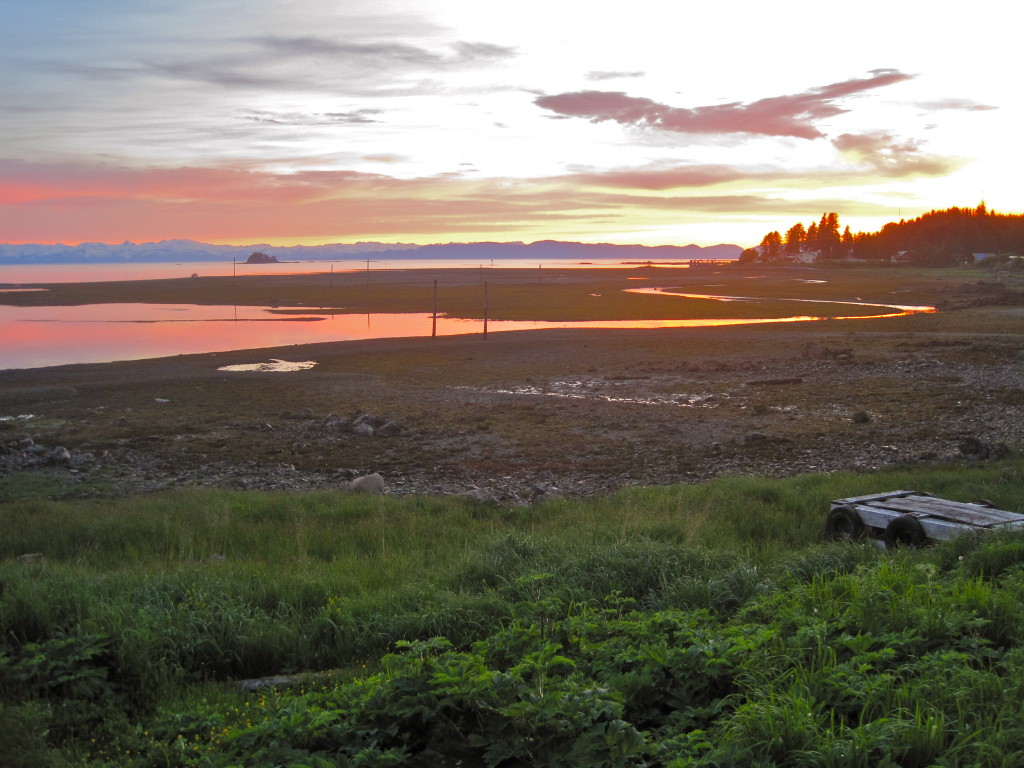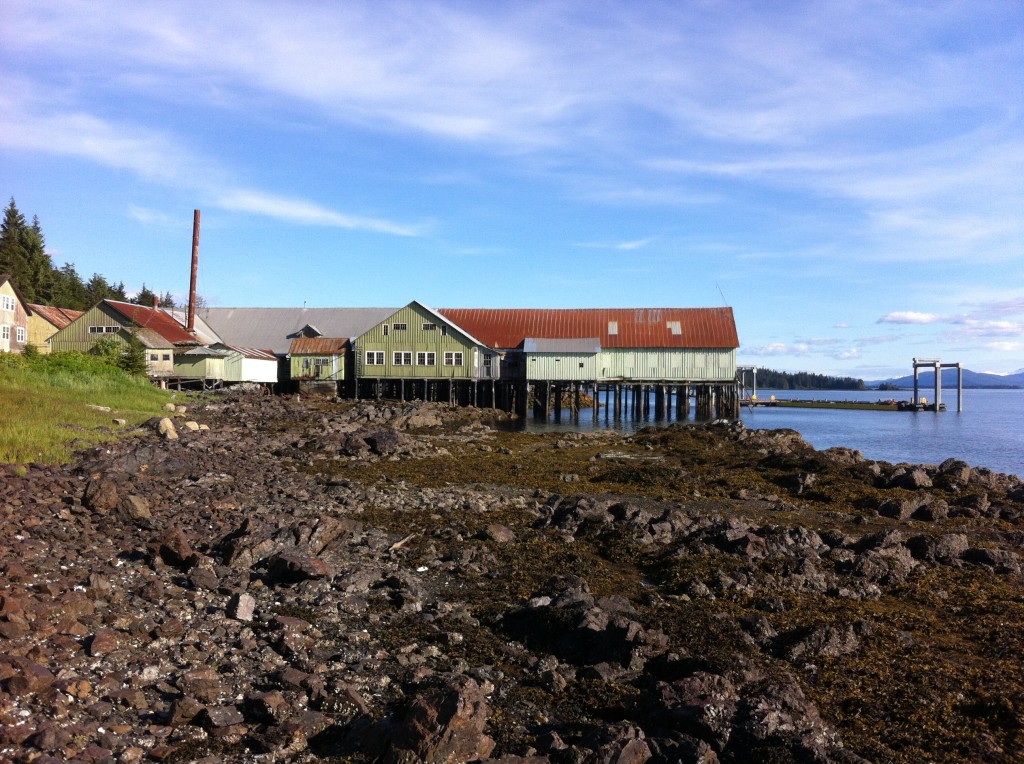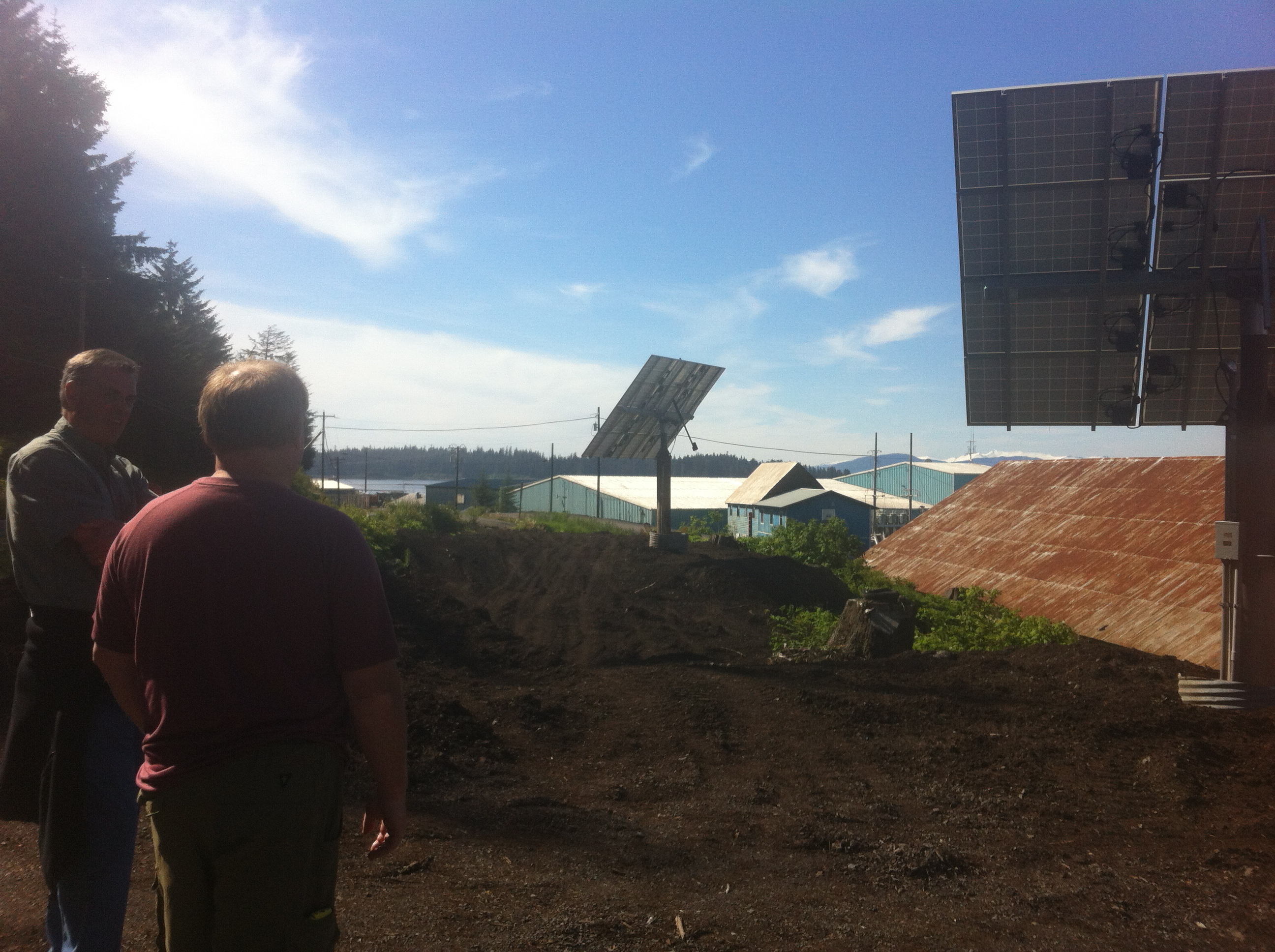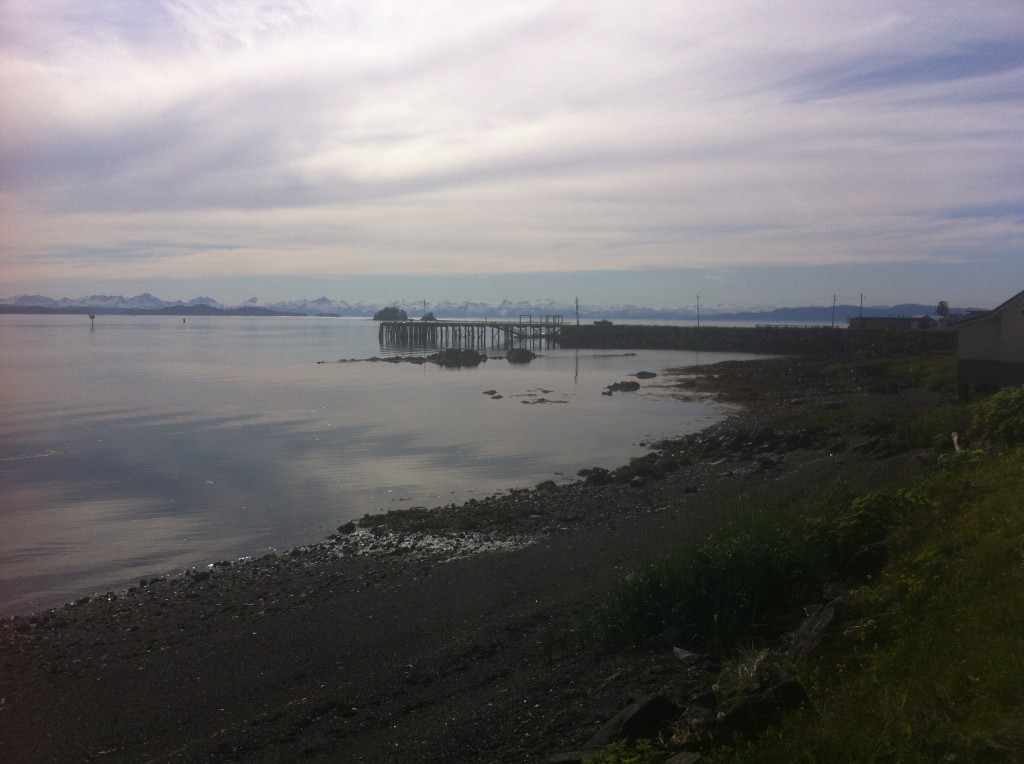Earlier this June the TBL team (Bob Christensen, Mike Skinner, and I) spent a few days visiting the community of Kake and speaking with many of the warm, friendly people that call that beautiful place home.
Written by: Angie Eldred, SAWC Communications Coordinator

We embarked on this trip with the purpose of getting to know the community a bit better; striving to get a snapshot Kake’s capacity for sustainable development through residents’ perceptions of the community’s opportunities, challenges, needs, and available resources.
Our stay in this small coastal community was filled with warm sunshine and warm people, always willing to graciously spend a few minutes with us and share their story. We met with Gary Williams, Executive Director of the local tribal organization, the Organized Village of Kake (OVK). Gary spoke with us about the community’s involvement in a Comprehensive Economic Development Strategy (CEDS) assessment in partnership with the University of Oregon. This assessment provides the community with a snapshot of information similar to what we were interested in learning, helping the community to plan for the future with the knowledge of where their capacities and resources lay.
Gary also spoke with us about the viability of the Southeast Alaska mariculture industry as growing economic opportunity for the community of Kake. Gary introduced us to Rodger Painter, a long time regional oyster farmer, president of the Alaska Shellfish Growers Association, and project coordinator for OVK’s oyster farm management apprenticeship program, which gives participants the skills and experience needed to start their own oyster farming enterprise. Painter is working to support the development of this economic opportunity in rural Alaskan communities.

We spoke with Bob Mills, President of Kake Tribal Corporation, about other economic opportunities in the community. He pointed us in the direction of the old abandoned Keku cannery. Mills echoes the sentiment of many others in the community, seeing the great economic and cultural revitalization opportunity that exists in the recently designated “Endangered Historic Landmark”. Many community members envision a restored cannery housing a cultural center to share the community’s history and help grow the cultural heritage tourism industry in Kake. However, the building currently sits in ruin, desperately in need of $500,000 to restore it’s rotting foundation.

Mills told us of the cannery’s glory days and the economic boon that a cold storage processing facility brought to the community. The rising cost of energy eventually made the cold storage facility economically unfeasible.
The town of Kake currently runs on diesel-powered generators and the high cost of energy is extremely prohibitive to economic development within the community. To combat this, community members have begun looking at alternative sources of energy, conducting feasibility studies and projects examining the use of alternative energies to supply power to the community.

In partnership with SEACC, the Organized Village of Kake installed two solar panels that help offset electricity costs for the OVK office building and act as a model to determine if solar panels are a feasible energy option for facilities in the community. A wind anemometer has also been installed on a hillside high above town testing the potential for wind power generation. Interested community groups have also begun to look at the feasibility of biomass boilers as a heat source for large buildings such as the school, potentially making use of some 2nd growth timber and slash left over from heavy logging near the community in the past.
When asked what challenges Kake faces in growing and developing in ways that benefit the community’s economy, social well-being, and surrounding natural resources, residents overwhelmingly responded that there is a great need to draw back and retain those community members that have left in hopes of finding greener pastures elsewhere. Community members consistently cited the need for empowered, driven, and skilled community members to commit and work to improve the quality of life for all residents of the community. Those individuals and organizations we spoke with all recognized the vast economic opportunities that exist in this small town rich with natural resources and cultural heritage, but they also recognized the need for a skilled, creative, and empowered workforce to take the lead on making these opportunities a reality.
While recognizing these challenges, Kake residents expressed a depth of hope for the future of their community, seeing endless creative opportunities for sustainable economic growth, social well-being, and informed management of the community’s natural resources. The people of Kake are deeply connected to the place they call home and the tight-knit community of friends, family, and neighbors with which they share it.

